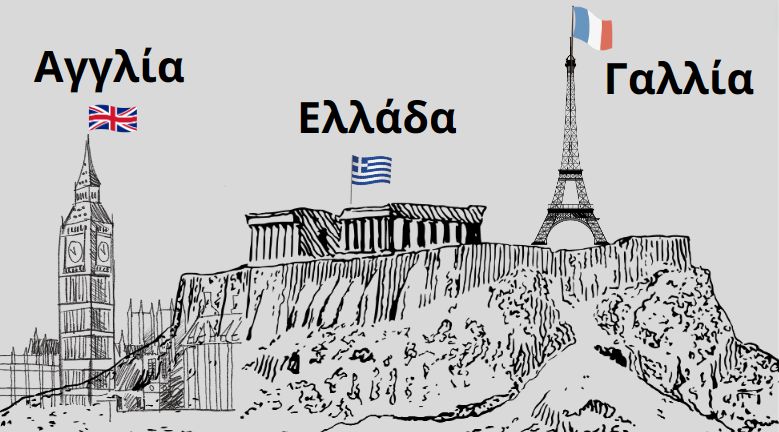Did you know that the idiom ‘crocodile tears’ (i.e. a hypocrite crying fake tears of grief) is thought to come from the Greek antiquity and popular belief that crocodiles weep while eating their victims? 
Jean Michel’s Greek learning journey has been illuminating and he’s discovered the influence of one of the oldest Indo-European languages in Western culture. The Ancient Greeks were the first to use a ‘true’ alphabet with both vowels and consonants. Many words of Greek origin are usually related to philosophy, science, culture and the arts. In this article, we will focus on English and French.
In some cases the pronunciation of common Greek words used in both English and French are similar:
- διάλογος (dialogos),
- γεωγραφία (geōgraphía),
- oikonomía (ikonomia),
- αλφάβητο (alfabeto),
- δημοκρατία (dēmokratia),
- etc…
There are also some interesting and confusing facts about the following combined letters: - ‘ph‘ (φ in Greek) are pronounced as ‘f‘ in both English and French, for example: φιλοσοφία (filosofía), φυσικός (fysikós)
- ‘ps‘ (ψ in Greek) loose the ‘p‘ sound in English whereas it is kept in French such as in the word ψυχολογία (psychología)
- ‘ch‘ ( ‘x‘ in Greek) sounds like ‘k‘ in English, but either ‘k‘ or ‘sh‘ in French, such as ἀρχιτέκτων (arkhitéktōn).
- ‘th‘ (θ in Greek) are pronounced as ‘th‘ in English but ‘t‘ in French, for example Μαραθώνας (marathonas), θέατρο (théatro).
We found it fascinating how such an old language has shaped the way we communicate and understand the world. Are you interested in learning Greek?
Enquire now and book your assessment class with our Greek teacher Vangelis.
